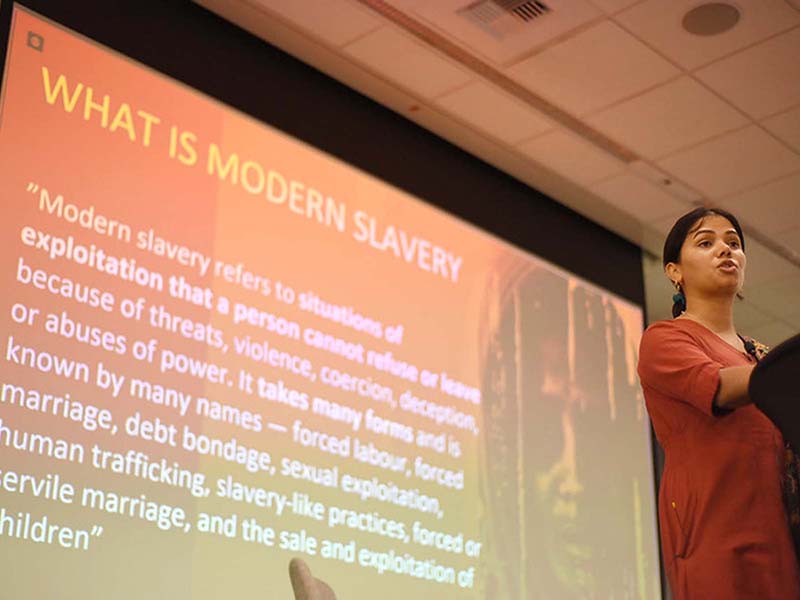
Authors
-
Rosa Kusbiantoro
Former Director, Transformation, BSR
-
Kelly Scott
Former Manager, Human Rights, BSR
A recently published investigative report by the Associated Press has brought attention to the issue of child labor, which continues to afflict the palm oil industry.
Unfortunately, the problem is not new—and neither are efforts to put an end to it. Over the years, leading agriculture companies have set ambitious targets (both individually and jointly) to eradicate child labor. However, child labor is a complex issue, and its root causes, such as high rates of poverty and lack of educational infrastructure, require holistic multi-stakeholder approaches and solutions. Furthermore, the complexity of global agricultural commodity supply chains mean that human rights issues are often concealed beyond tier 1 due to a lack of transparency. This can oftentimes make it challenging to identify and address potential and actual harms to children.
Nevertheless, there are individual policies and management practices that palm oil companies need to introduce and implement in their operations to prevent child labor from occurring. Palm oil companies should also ensure that proper child labor remediation processes are developed and carried out if there are instances of child labor identified in their own and/or suppliers’ operations.
To this end, BSR supported the development of agribusiness group Wilmar’s Child Protection Implementation Manual, in collaboration with global buyers. The manual is intended to guide Wilmar’s suppliers and contractors in Indonesia toward a better understanding of the steps required to protect and safeguard children’s rights, and it is also applicable to the wider agriculture industry.
Underpinned by the Convention on the Rights of the Child (CRC), the UN Guiding Principles on Business and Human Rights, and other international standards, the manual provides a guide for Wilmar and its Indonesian suppliers to establish and implement policies related to safeguarding and protecting children from child labor and other forms of abuse in their operations as well as remedial actions.
Based on UNICEF’s Child Safeguarding Toolkit for Business, Wilmar’s manual outlines six practical due diligence steps and preventative measures that palm oil companies can take to protect and safeguard children in their operations and supply chains:
- Conduct a child protection risk assessment to understand how a company’s activities, employees, or representatives pose risks to children either through a standalone self-assessment or integrated within its own risk or impact assessment process while engaging with external child rights experts.
- Conduct a gap analysis of existing policies and practices to understand the extent to which child protection has been integrated into the company’s risk assessment and management processes.
- Develop a policy commitment to set out the company’s responsibility to respect human rights, including children’s rights. The commitment should be approved at the highest level of the business, embedded across all operations, and communicated internally and externally.
- Develop an implementation plan detailing how the Child Protection policy will be operationalized and embedded within the company.
- Establish a reporting structure to receive and respond to reports regarding the welfare of a child. This reporting structure can either build on existing company policies and reporting structures or standalone structures that are solely related to child protection issues.
- Provide guidance for employees on how to take appropriate actions when concerns about a child’s safety and welfare are raised using the company’s reporting structure and grievance channels.
The manual is also aligned with the Roundtable on Sustainable Palm Oil (RSPO)’s Guidance on Child Rights for Palm Oil Producers to strengthen child rights protection while further improving compliance with the RSPO certification standard. The RSPO guidance aims to improve the livelihoods of children and their communities while providing support for interventions and to minimize potential adverse impacts.
In the event that instances of child labor are found—even when hiring policies and practices, age verification, and workplace assessments are in place—Wilmar’s manual also provides guidance on how to develop a child labor remediation plan.
A remediation plan should include a set of operational principles to guide a company’s responses on a case-by-case basis according to the best interests of the child. Supporting a child’s education or employment for their parent/guardian are just a few of the remedial actions that companies can take once the child is removed from work while keeping their best interests at the center of all decision-making.
In order to monitor implementation and impact of the manual, BSR will continue to work with Wilmar to conduct a pilot of the Child Protection Implementation Manual with a selected supplier in Indonesia at the operational level. Together, we will test and refine the manual’s practical applicability, build supplier capacity to address child protection issues in palm oil estates in Indonesia, and subsequently share key lessons learned with Wilmar’s supplier base in Indonesia. We hope that these practices will be widely adopted across the palm oil industry.
For more information on Wilmar’s Child Protection Implementation Manual and any questions about the next phase of work, or to learn more about BSR’s work on business and human rights, including children’s rights, please reach out to connect with our team.
BSR’s latest sustainability insights and events straight to your inbox.
Topics
Let’s talk about how BSR can help you to transform your business and achieve your sustainability goals.







